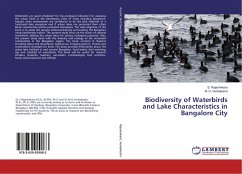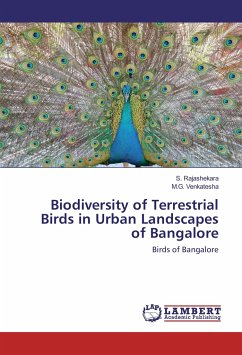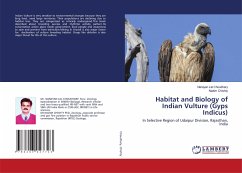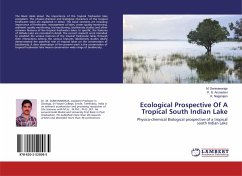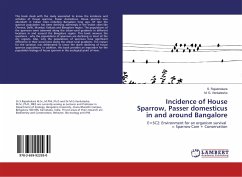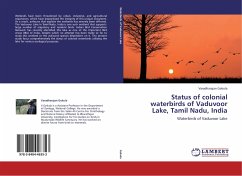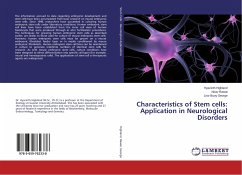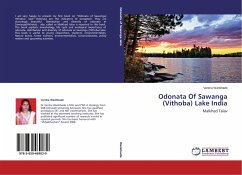Waterbirds are good inhabitant for bio-ecological indicators for assessing the urban lakes in the developing cities of India including Bangalore. Aquatic avian communities are considered to be the best indicator of a functional lake ecosystem and if urban lakes are protected then other biotic communities will be protected themselves. The main objective of this book is to assess the aquatic avifaunal diversity surrounding the Bangalore using biodiversity indices. The present study focus on the status of colonial waterbirds utilizing the urban lakes for various ecological purposes. Also, the present study deals with the diversity and ecology of the waterbird communities in the Bangalore region. The book contains 8 chapters including status and abundance, habitat use, foraging pattern, threats and conservation strategies for birds. This book provides information about the urban lake habitats in and around Bangalore, food habits, bird watching tips and checklist of waterbirds. This book will be useful for research scholars, students, teachers, naturalists, ornithologists, bird watchers, forest conservationist and officials.

